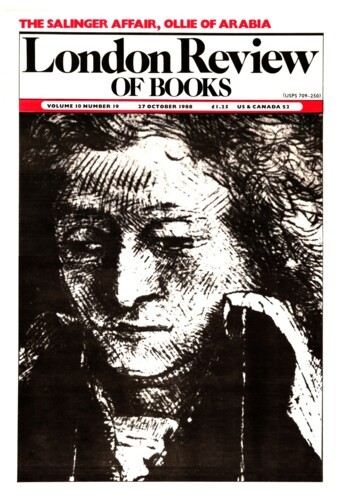Ideas of War
Johann Sommerville, 27 October 1988
‘In war,’ Napoleon said, ‘moral considerations make up three-quarters of the game: the relative balance of manpower accounts only for the remaining quarter.’ Just one of these three books appears to endorse this thesis. Ian Clark’s Waging war argues that moral philosophers have much to contribute to an understanding of warfare. How war is fought depends, at least in part, on the concepts of war held by those who participate in it: ‘the idea of war itself is a major factor in the way in which it is waged.’ So to grasp what past wars were about ‘is undoubtedly, albeit not exclusively, an excursion into the history of ideas’. Professors Parker and Anderson discuss past wars, but rarely wander into the history of ideas. Parker’s book, which is scholarly, stimulating, lucid and very attractively presented, is concerned with technical changes in the conduct of war during the Early Modern period, and with the effects of those changes, his argument being that there was a military revolution in 16th and 17th-century Europe, and that this revolution was crucial in enabling the West to control 35 per cent of the Earth’s surface by 1800.

